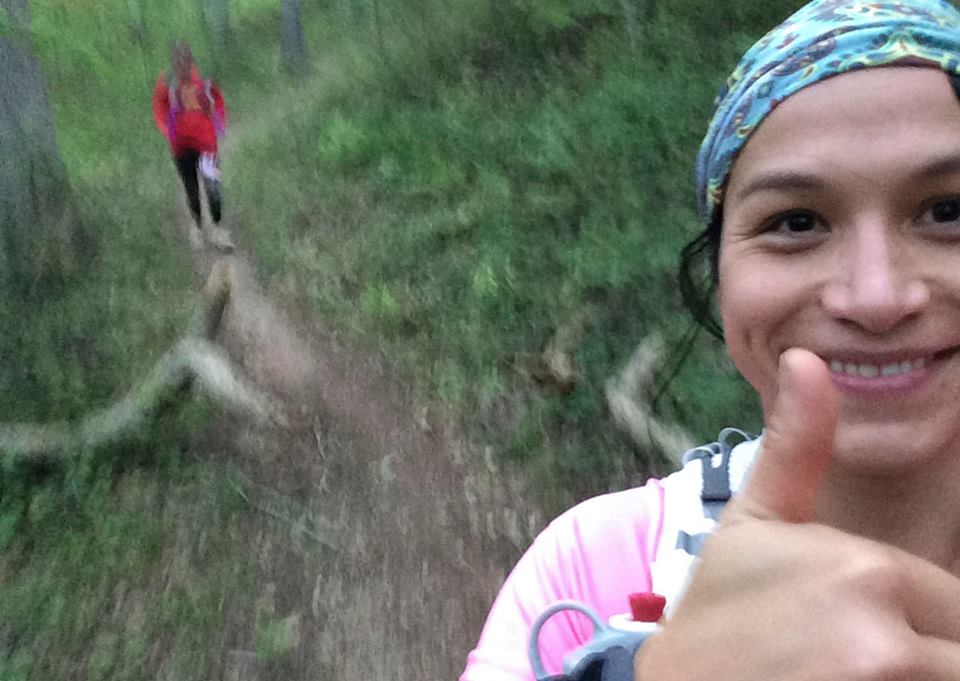|
I never really thought much about having a crew and/or a pacer until I signed up for my first 100-miler. However, I have stepped up to the start line at a few races and thought to myself, “How am I going to get in and out of the aid station at 45 miles when I’ll barely be able to bend down to change my shoes?” (And, let’s face it, this is probably the least of one’s issues at that distance.)
When I’d get to the aid station, though, there would always be a friendly face — in most cases that of a stranger. “What can I do for you?” “How can I help?” “What do you need?” He or she would refresh my water and fuel, get me something to eat and, yes, even bend down and lace up my shoes for me. This is the undeterred camaraderie of trail and ultra races. This is also the reason why I personally wouldn’t entertain a pacer for a distance under 100K. But when do you need a pacer, or do you need one at all? Talking to a number of ultra running friends and acquaintances, I’ve learned there are two schools of thought on the subject. Let’s take a look at both sides. The Case Against a Pacer It’s an endurance race, and you’re supposed to do it alone, using your own strengths and abilities. The challenge lies in beating your body, your mind, the trail and whatever Mother Nature throws at you. The purity of the adventure. The solitude of solo distance running. Isn’t that why you signed up for the race in the first place? It’s because of this “all-or-nothing” mindset that many runners decide to forgo pacers. In some rare cases, your pacer has a bad day or is unprepared and needs assistance. So, guess who ends up being the babysitter? At this point, do you worry about your race or do you worry about your pacer? Do you really need that distraction, especially at a distance over a 100K, when time gets fast but everything else gets slow? Some racers argue they can just as easily find another runner on the course that they can pace with, so why bother with another body on the trail? It’s not unusual for some ultra distance runners to become grouchy or withdrawn when they’re “in the zone,” and this can become an issue as the miles add up and pain and fatigue set in. Aggressive energy could ruin a relationship between a runner and his or her pacer. The most common thing I heard was, “I’m not racing for time, so what do I need a pacer for?” Some even argue that the use of pacers is like being hand-held along the course. If the pacer weren’t there, would the runner be moving along at the same rate? Clearly, they’ve got someone else doing the thinking for them. The Case for a Pacer The harder the race is, the better your case for having a pacer — and the better your overall chances for success are, no matter your goal. I can’t speak to the exact stats for runners finishing 100-mile races with pacers versus those without, but I’d be willing to bet it’s a big difference. And even if a runner finishes an ultra without a pacer, they probably would’ve finished with a better time and had a lot more fun had they used a pacer. When you bring on a pacer after 50 miles of solo running, it’s not so he or she can hold your hand. Nor is a pacer a dog or a cat that’s there for companionship. A pacer keeps you safe. He or she is of sound mind and body. Trail conditions can be hazardous at the best of times, and when you’re running in a state of delirium, that snake on the trail can look like a cool stick that you just have to stop and pick up. There’s truth in the saying “safety in numbers.” In a pacer you have someone who focuses on your personal finish goals when perhaps you can’t. A smart pacer will zero in on signs of distress when a runner might be struggling. They will look for fluctuations in pace, dexterity and general energy levels. They will keep the runner eating and drinking even when their appetite is shot. A pacer can help you push through the pain and overcome those mental blocks that occur beyond 50 miles. They can think logically with their head — instead of with their heart, like a disoriented runner — when important decisions need to be made during a race. A pacer also understands how to capitalize when a runner is feeling strong, pushing the pace and the positive emotions. Final Thoughts So, should you use a pacer or not? Well, the simple answer isn’t so simple — it’s really just a personal choice. In my opinion, no matter what your goals are, you should take advantage of every way to get to that finish line as quickly as possible. I don’t agree with the “all-or-nothing” approach, and while not all 100-mile races will require a pacer, I think that for certain races a pacer can be critical. However, I also disagree with the statement that “a pacer can make or break your race.” In the end, it’s your run and yours alone. Others can run it with you, but no one can run it for you. Looking back at my first experience with pacers at the Mark Twain 100, I fully enjoyed it. The laughs, the stories, the pain, the success — none of it would’ve been the same had I not gotten to share it with my fabulous girls (you know who you are). So, for me, I say “yes” to pacers. Author: Shalini Kovach is a trail junkie and ultra distance runner living in Ballwin, Mo., and is the lead organizer of Terrain Trail Runners.
1 Comment
|
AuthorsOur blog writers are members of Terrain Trail Runners, local athletes just like you, who want to share their love and knowledge of the sport. Archives
March 2023
Categories
All
|


 RSS Feed
RSS Feed